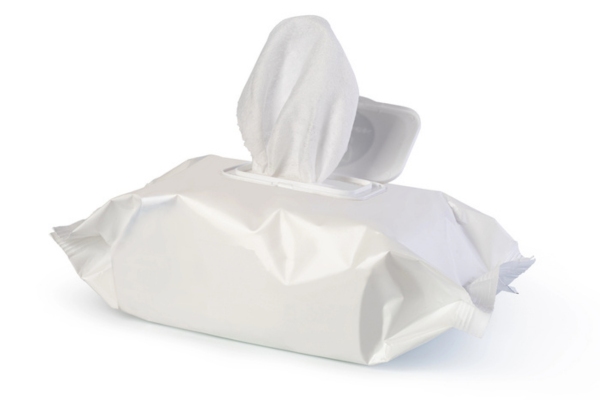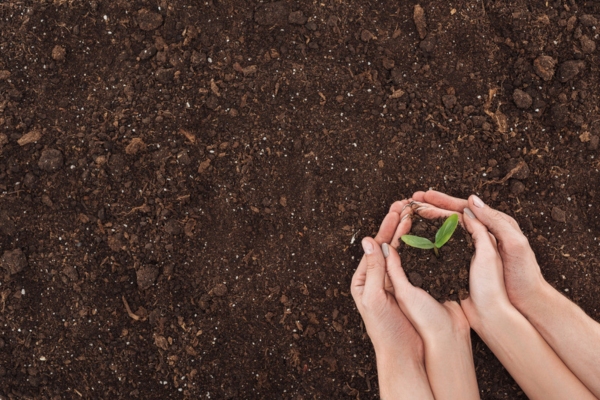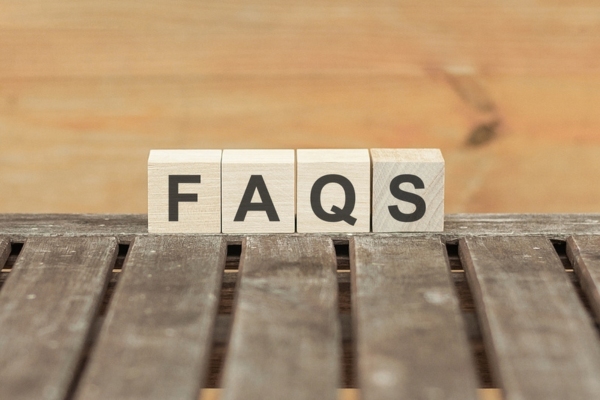Think twice before you flush that wipe! Despite the convenience and seemingly harmless label, flushable wipes may not be as flush-friendly as advertised. As a leader in plumbing solutions, Robinson Plumbing has seen firsthand the repercussions that come with disposing of these wipes in toilets.
This article delves into the reality behind the “flushable” label, outlining the potential risks to your plumbing system and the overall environmental impact. Homeowners can make informed decisions about their disposal practices by understanding the true nature of these products.
Keep reading to learn the answer to the pressing question: Can I flush flushable wipes without risking costly repairs?
Flushable Wipes: Safe or a Plumbing Disaster?
Contents
- 1 Flushable Wipes: Safe or a Plumbing Disaster?
- 2 What Are Flushable Wipes?
- 3 Do Flushable Wipes Really Break Down?
- 4 How Flushable Wipes Can Harm Your Plumbing
- 5 The Environmental Impact of Flushable Wipes
- 6 Flushable Wipe Alternatives: What Should You Do Instead?
- 7 When to Call Robinson Plumbing for Plumbing Help
- 8 Can I Flush Flushable Wipes?: FAQs
- 8.1 Why Do Some Flushable Wipes Get Approved for Flushing If They Can Cause Clogs?
- 8.2 Can Using Flushable Wipes Lead to Increased Plumbing Costs?
- 8.3 Do Flushable Wipes Affect Water Treatment Facilities?
- 8.4 Are There Any Regulations on Labeling Wipes as ‘Flushable’?
- 8.5 What Is the Best Alternative to Flushable Wipes?
- 9 Conclusion
- 10 Contact Robinson Plumbing for Expert Plumbing Services
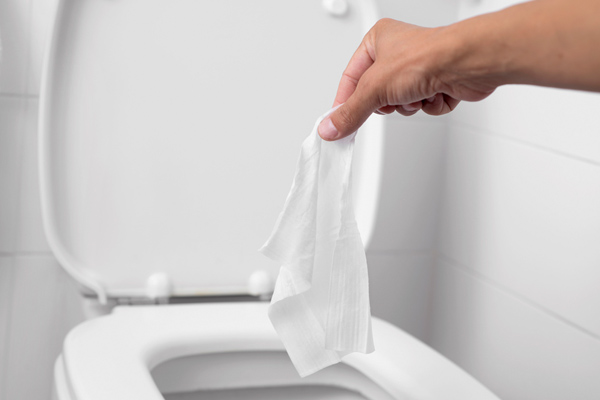
Despite their widespread use and labeling as “flushable,” many homeowners are left questioning the safety of these wipes. This discussion will shed light on the myths and facts surrounding flushable wipes, helping you understand their real impact on your plumbing system.
Trust the Experts for Your Plumbing Needs: From repairs to full system upgrades, Robinson Plumbing has the right solution—contact us today!
What Are Flushable Wipes?
Flushable wipes are often promoted as a handy substitute for traditional toilet paper. They are designed to break down in water and are labeled as “flushable” or “septic-safe.” Unlike regular wet wipes, they are made from stronger, thicker materials and often incorporate synthetic fibers that inhibit rapid disintegration.
Despite the marketing claims that these wipes dissolve easily, numerous tests and real-world experiences consistently reveal a different reality. These tests indicate that flushable wipes do not break down as readily as suggested, leading to potential plumbing issues.
Do Flushable Wipes Really Break Down?
Toilet paper disintegrates almost immediately in water, preventing clogs in plumbing systems. Conversely, flushable wipes, despite their name, can stay intact for weeks or more, posing significant risks to pipes and sewage systems. The resilience of these wipes often leads to plumbing challenges and blockages.
Industry studies and reports from water treatment facilities reinforce these concerns. Tests frequently reveal that wipes labeled “flushable” fail to break down adequately in standard plumbing and sewer systems.
Many municipalities also report increased incidents of clogged pipes and sewage backups, which are directly linked to these wipes. This evidence suggests a stark difference between marketing claims and the actual performance of flushable wipes in real-world scenarios.
Reliable Plumbing Services for Your Home: Whether it’s maintenance, repairs, or new installations, Robinson Plumbing is here to help—call now!
How Flushable Wipes Can Harm Your Plumbing
Flushable wipes may not be as safe for your plumbing as their packaging suggests. Here’s how they can cause significant damage:
Increased Risk of Drain Clogs
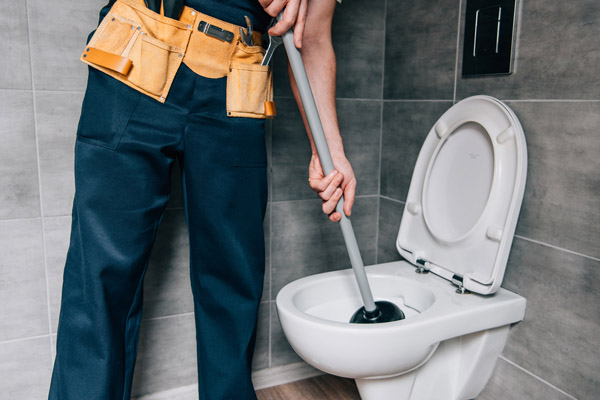
Flushable wipes are prone to snagging on rough patches within plumbing pipes, where they gather debris and form persistent clogs. This risk is even more pronounced in homes with older plumbing systems or those compromised by tree root intrusions, making wipes a major concern for homeowners.
Damage to Sewer & Septic Systems
In sewer systems, flushable wipes can lead to severe blockages, necessitating costly repairs and increasing the likelihood of unpleasant sewage backups. These wipes do not disintegrate properly for homes with septic systems, leading to decreased system efficiency and the need for more frequent septic tank pumping.
Keep Your Plumbing System Operating Smoothly: Our expert team provides top-quality service for all your plumbing needs—schedule today!
Higher Plumbing Maintenance Costs
The use of flushable wipes can force homeowners to seek professional drain cleaning services more often than would otherwise be necessary. Additionally, municipal water treatment facilities incur millions of dollars in annual expenses to remove wipes that do not break down in the wastewater treatment process, further highlighting the economic impact of these products.
The Environmental Impact of Flushable Wipes
Despite being labeled as flushable, many wipes are not fully biodegradable, containing synthetic materials that prevent them from breaking down naturally. This results in significant environmental issues, such as the formation of fatbergs—giant congealed lumps that clog municipal sewer systems. These blockages are exacerbated by the wipes combined with fats, oils, and other non-biodegradable matter.
Moreover, the presence of these wipes in sewage systems increases the strain on wastewater treatment facilities, elevating pollution and the costs associated with removing these non-disintegrating materials from the water, ultimately impacting city budgets and environmental health.
Upgrade Your Home With Professional Plumbing Solutions: From fixture replacements to pipe installations, Robinson Plumbing does it all—contact us now!
Flushable Wipe Alternatives: What Should You Do Instead?
To avoid the negative impacts of flushable wipes on plumbing and the environment, consider these safer alternatives:
Stick to Toilet Paper
Toilet paper remains the safest and most plumbing-friendly option. It is designed to break down quickly and efficiently in water, minimizing the risk of clogs and sewer issues.
Dispose of Wipes in the Trash
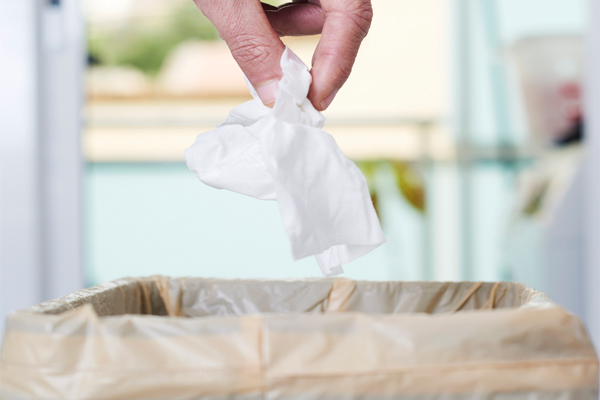
Instead of flushing them, dispose of all types of wipes—whether labeled flushable or not—in a small, covered trash bin located in your bathroom. This includes wet wipes, baby wipes, and other personal care products.
Plumbing Problems? We’ve Got the Solution: Whether you need a minor fix or a major upgrade, Robinson Plumbing is ready to assist—call today!
Use Truly Biodegradable Wipes
Opt for wipes that are truly biodegradable and made from plant-based materials. These compostable wipes are a greener choice, although it is still advisable not to flush them, as they may not break down sufficiently in the sewer system.
Schedule Regular Drain Maintenance
If wipes have been a regular part of your bathroom routine, consider scheduling a professional drain inspection. This can help detect any buildup early and prevent severe blockages, keeping your plumbing system healthy and functional.
When to Call Robinson Plumbing for Plumbing Help
Encountering issues with your plumbing can be a sign of clogs often caused by flushable wipes. Here are key indicators that it’s time to reach out to Robinson Plumbing for professional assistance:
- Toilets and sinks drain slower than usual.
- Pipes make gurgling noises after flushing.
- Frequent backups in your toilet.
Our skilled plumbers specialize in drain cleaning, clog removal, and comprehensive sewer line inspections, all designed to maintain your plumbing system’s integrity. Regular maintenance checkups are crucial. Robinson Plumbing offers these services to promptly catch and fix minor issues so they don’t become major, expensive plumbing emergencies.
Ensure Your Plumbing System Works Efficiently: Get expert inspections, repairs, and maintenance from Robinson Plumbing—schedule an appointment now!
Can I Flush Flushable Wipes?: FAQs
Why Do Some Flushable Wipes Get Approved for Flushing If They Can Cause Clogs?
Many wipes labeled as “flushable” meet basic disintegration tests set by manufacturers, but these tests often do not reflect real-world plumbing conditions. Unlike toilet paper, which dissolves almost immediately, most wipes remain intact for extended periods. These wipes can easily accumulate in older plumbing systems or sewer lines with buildup, leading to costly clogs.
Can Using Flushable Wipes Lead to Increased Plumbing Costs?
Yes, frequent use of flushable wipes can significantly increase plumbing expenses over time. They do not break down easily, leading to slow drains, sewer backups, and even pipe damage. Homeowners often end up paying for repeated drain cleanings, hydrojetting, or, in severe cases, major sewer line repairs. These hidden costs make flushing wipes an expensive habit in the long run.
Do Flushable Wipes Affect Water Treatment Facilities?
Absolutely. Municipal wastewater treatment plants struggle to filter out non-biodegradable materials, including wipes, which clog pumping stations and damage treatment equipment. The accumulation of wipes contributes to the formation of “fatbergs”—large masses of grease, debris, and wipes that block sewer lines. These issues lead to higher water treatment costs, increased environmental pollution, and even sewage overflows.
Comprehensive Plumbing Services You Can Rely On: From water heaters to pipe repairs, trust Robinson Plumbing to get the job done right—call us today!
Are There Any Regulations on Labeling Wipes as ‘Flushable’?
While some regions are introducing stricter regulations, many flushable wipes are still self-labeled by manufacturers, meaning they do not have to meet an official standard for disintegration. Organizations like the Environmental Protection Agency (EPA) and wastewater authorities are pushing for independent testing and more accurate labeling to prevent misleading marketing that contributes to plumbing and sewer problems.
What Is the Best Alternative to Flushable Wipes?
The most effective and plumbing-safe alternative is a bidet, which provides superior cleanliness without the risk of clogging pipes or damaging sewer systems. Bidets use a gentle stream of water for personal hygiene, eliminating the need for wipes altogether. Many modern bidets are easy to install, offer adjustable settings, and are more eco-friendly than disposable products.
Conclusion
Despite their labels, flushable wipes do not dissolve as readily as toilet paper, often leading to clogs, sewer damage, and expensive repairs. The safest disposal method is to throw these wipes in the trash, not the toilet.
As your trusted plumbing expert, Robinson Plumbing specializes in drain cleaning, clog removal, and preventative maintenance to keep your system running smoothly. If you suspect that flushed wipes are causing plumbing issues, don’t hesitate to contact Robinson Plumbing immediately to mitigate potential damages and maintain the health of your plumbing infrastructure.
Your Go-To Plumbing Professionals: Whether you need routine maintenance or emergency service, Robinson Plumbing has you covered—contact us now!
Contact Robinson Plumbing for Expert Plumbing Services
When you need reliable plumbing solutions in Lehigh Valley, PA, Robinson Plumbing is here to help. We provide a wide range of services, including drain cleaning, leak repairs, sump pump installations, water heater replacements, toilet repairs, and more. Our services are designed to fit your unique needs and budget, offering exceptional value and long-lasting results.
With same-day emergency plumbing services, we’re ready to handle your urgent issues promptly and affordably. Our certified plumbers deliver top-notch workmanship and ensure your complete satisfaction.
Don’t let plumbing problems disrupt your day—call Robinson Plumbing for a free consultation and experience the difference in professional, dependable service. Our team is here to tackle all your plumbing challenges with speed and expertise. Contact us now!
Call us today at (610) 351-9889 or contact us for any questions that you might have! Click the link to view our service area.
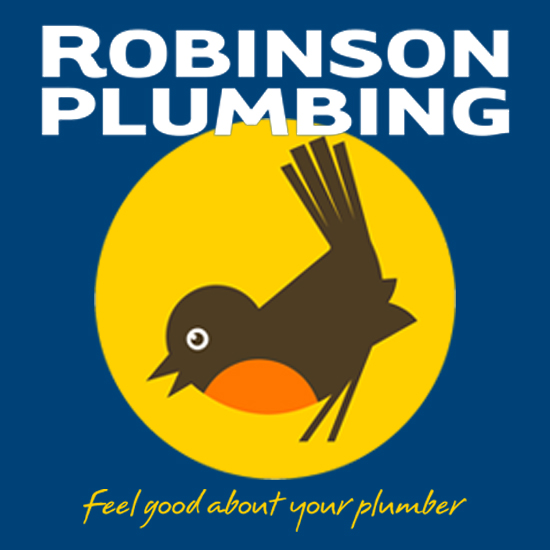
Related Articles:

